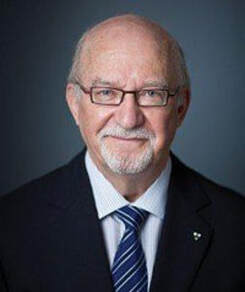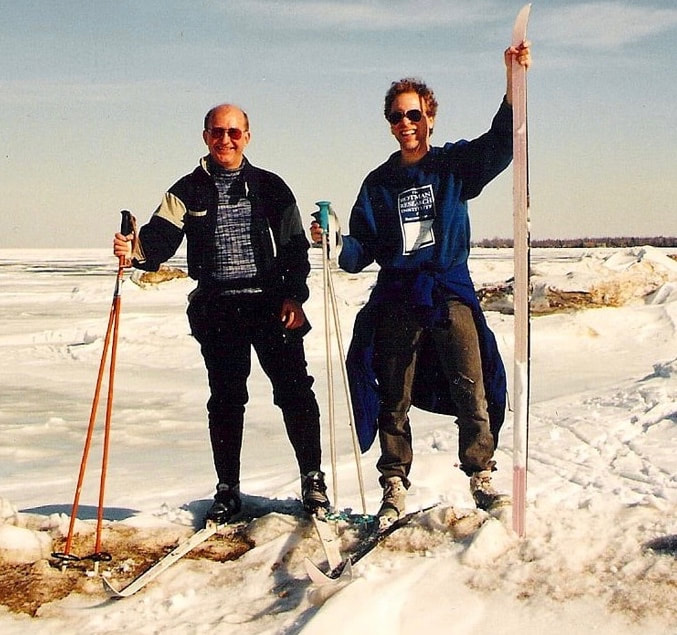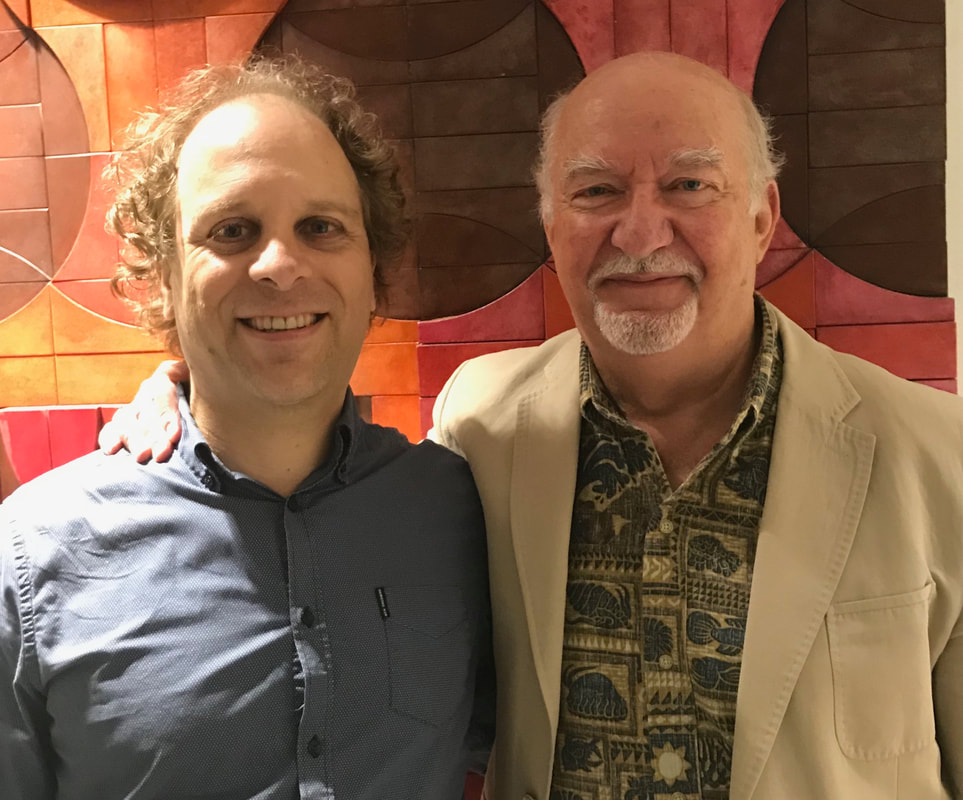Don Stuss 1941-2019Don Stuss was one of the foremost contemporary neuropsychologists, world leader in the neuroscientific study of the prefrontal cortex, and founding director of two leading neuroscience institutes (the Rotman Research Institute and the Ontario Brain Institute). Don’s science always started with clinical observations and was centered on questions central to humanity, such as how we view ourselves and others and how we successfully function in the world. In the same vein, Don brought his humanity into all of his interactions, leaving many indelible impressions throughout the world in his personal and professional networks.
The purpose of this website is for people touched by Don to share thoughts and memories as we celebrate his life and grieve his loss. To leave a comment on the page please click here. If you have any photos that you would like to share in the gallery please send them in an email to [email protected]. -Brian Levine - B |
|
I first met Don in Boston in 1992 as he was visiting my internship supervisor, Bill Milberg. I was working with Bill developing tests of executive or prefrontal functioning, which we found to be inadequately assessed with standardized instruments. Don and I had an instantaneous connection not just around this clinical/scientific question, but personally. At one point during that visit I saw him pull out a fancy pen to write something down. I commented on the pen, which was an inappropriate thing for me to do given our difference in status. Don laughed and immediately made an excuse, saying it was a gift from a trainee. There is a lot in that interaction. First, a trainee thought to give him a fancy pen as a gift, probably because he had a huge impact on that trainee’s life (as he did on mine, which you will see in a minute). Second, he disavowed the fanciness of the pen. It was OK to receive it as a gift but it was not something Don would seek out on his own, because he was completely lacking in pretense. Third, he was unfazed by the brash comment on his pen, because Don, in spite of his achievements, never thought of himself as higher status than anyone else.
Don and I continued to correspond about executive functioning assessment. Before long, a postdoctoral position at the Rotman Research Institute (RRI) was advertised. I was hesitant. I had nearly completed my clinical postdoctoral training and I was already an independent licenced psychologist. Completing another fellowship would have been costly in terms of money and time. Moreover, I had little research background and therefore was not competitive for a research postdoctoral fellowship. But I checked with Don and he said I should apply. Later I learned that as RRI director, Don made sure all other RRI scientists got a postdoc before him; he decided that it was finally his turn. I also learned that there was pushback against my application (by people who have since become my friends and colleagues), for good reason. It wasn’t a good application – not one that I myself would have given much thought to as a principal investigator. I still don’t know why Don fought for me, but if he hadn’t nothing I have achieved since in my career would have happened. I did the work, but Don opened the door for me at a time when no one else would have done so. When I arrived in Boston at the VA, it was on the descending limb of the peak curve as a world centre of cognitive neurology and neuropsychology, but there was a lingering impression of what it must have been like; a lot of the key players, such as Edith Kaplan, Harold Goodglass, and Laird Cermak, were still around. I imagine that the RRI in the 1990’s had similar impact on the field of cognitive neuroscience as did 1980’s Boston on behavioural neurology. It is hard to describe the feeling of that period. The level of excellence was world-class, but we were a family. Don ensured that with his own behavior and by recruiting like-minded people. At a day-to-day level, there was little separation among the giants in our field and the trainees. Everyone loved Rotman Rounds and the Rotman conferences, where the likes of Don, Endel Tulving, Gus Craik, and Morris Moscovitch would do battle with visitors like Tim Shallice, Pat Goldman-Rakic, and Deepak Pandya, and trainees were right in there fighting and scoring points. Before long, many of those trainees would become leaders in the field. For us who were there in Toronto, it felt as though there was no better place in the world to do cognitive neuroscience, considering the technology and – more importantly – the people with the ideas about what to do with it. Don told me that he turned down an offer to do the second edition of his (and Benson’s) classic 1986 book, The Frontal Lobes, because by the 1990’s the field had grown too big. But Don built research institutes where he and others realized the vision of clinical-scientific study of mind and brain that was seeded in his 1986 book. Inevitably, the RRI grew and evolved. That’s OK. But Don’s legacy remains in the strength of our relationships. Let me share a couple more stories. Don got interested in the cerebellum and cognition in the mid-2000s. Of course, he knew the frontocerebellar connectivity backwards and forwards, and there was a literature on this. One day Don gave a Rotman rounds outlining his thoughts. It was basically done off the top of his head; it was not one of his better talks. After the talk, Gordon Winocur said to me, “Only Don Stuss could give a talk like that.” In other words, only Don had the chutzpah to attempt a talk with so little prep. Nonetheless, the ideas were solid, and Don went on to publish several papers (with Tom Schweizer) based on his subsequent studies in patients with focal cerebellar lesions. One morning we arrived at work to find one of Don’s research assistants crying. She had stayed up late and was overwhelmed. Don said nothing. He instantly took her by the hand and into his office for a chat. The way he did it would have been infantilizing had it been done by anyone else, but it was just what she needed at that moment. When we talked about it later, he said “She just had too many things in the hopper.” I met Don as a young man with few real problems or cares in the world. That soon changed when I lost my father to pancreatic cancer in the summer of 1994, followed rapidly by the numerous ups and downs of adult life. In 1994, Don encouraged me to make the frequent trips home to Detroit on Highway 401 to support my parents in the last weeks of my father’s life. Don was one of the first people I called after my dad died. I could not have imagined the friendship with Don that followed, and that this friendship was itself to be lost to cancer almost exactly 25 years later.
0 Comments
Leave a Reply. |
Obituaries written by Don's friends and colleagues: American Psychologist Brian Levine and Gus Craik. Read it here The Journal of Cognitive Neuroscience Mick Alexander, Terry Picton & Tim Shallice Canadian Psychologist Gus Craik & Brian Levine Read it here. Appreciation of Don in the Globe and Mail. Click here. Call for Abstracts: Special Issue of Journal of Cognitive Neuroscience in honour of Don Stuss Click here for details. Archives |



 RSS Feed
RSS Feed
